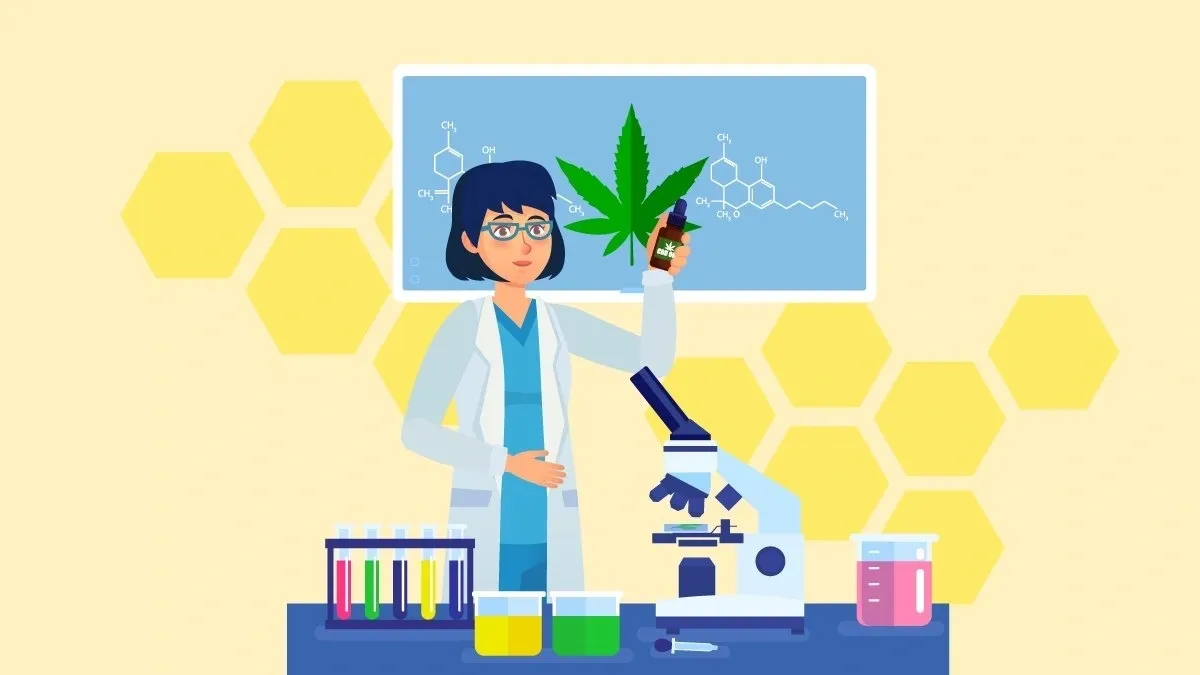What are Cannabinoids?
In the simplest of terms, cannabinoids are chemical compounds found in the cannabis plant; the name itself derives from where these chemical structures function in our body. In some way, shape or form, cannabinoids interact with theendocannabinoid system through cannabinoid receptors.
Although we’ll focus on cannabinoids coming from the cannabis plant (phytocannabinoids), our body produces its own natural chemicals (known as endocannabinoids) that play an important role in our health.
What Can Cannabinoids Do?
Our endocannabinoid system is a neuromodulatory system that affects the signaling of messages in our body. What’s the takeaway? This system helps our body achieve homeostasis and brings us back to baseline. Through signaling interactions in the body, these compounds found in cannabis can play a tremendous role in appetite, mood, memory, pain perception, and sleep.
What are the Benefits?
THC (Tetrahydrocannabinol)
THC is the most well-known cannabinoid due to its psychoactive effects. Yes, THC will get you “high”, but it can produce some very calming effects that may be beneficial in conditions such as anxiety and/or depression. THC is beneficial in pain management as it can alter pain perception and even offer appetite stimulation for those struggling with regular eating habits.
THC is notorious for reducing nausea in chemotherapy-induced nausea and vomiting, reducing muscle spasms, and improving duration and overall quality of sleep. THC is the most sought after cannabinoid and it’s likely not losing its crown anytime soon.
CBD (Cannibidiol)
CBD is another very well-understood and loved cannabinoid. CBD can be found outside of traditional dispensary settings as it does not have any psychoactive effects and therefore does not need to be regulated the same manner as THC. CBD is most commonly used for its anti-inflammatory properties in conditions such as arthritis, irritable bowel syndrome, fibromyalgia, and other pain-related disorders.
CBD plays a significant role in epilepsy management as well. CBD is known to decrease the frequency and the severity of seizures, especially in the younger population. Another crucial role CBD can potentially play a role in is anxiety/depression management. CBD taken on a daily basis can relieve anxiety-related symptoms, even at small doses.

CBG (Cannabigerol)
CBG has gained popularity as of late for its own impressive portfolio of benefits. CBG is often referred to as the “mother of all cannabinoids” as its the precursor to both THC and CBD. Cannaigerol does NOT have any psychoactive effects but is understood to have similar anti-inflammatory effects to CBD and can also aid in the relief of chronic pain, anxiety, and insomnia.
While there is still a lack of research specific to CBD, early studies show CBG may play an even bigger role in GI-related inflammation. Patients with conditions like inflammatory bowel diseases should look for strains with significant amounts of CBG. Remember, even just small percentages >0.25% in flower products can be significant.
CBN (Cannabinol)
CBN is a popular choice to supplement THC for its sedative effects. CBN is mildly pyschoative. Interestingly enough, studies suggest that the tranquilizing effects of CBN are enhanced when used in combination with THC. CBN is mostly found in older cannabis as the chemical structure of the plant tends to change as it ages. A bit more CBN in your nighttime cannabis routine might just be what’s needed for some extra relaxation.
CBC (Cannabichromene)
This cannabinoid is not as well understood as the ones previously mentioned, but still has some evidence of health benefits. CBD shows anti-inflammatory, analgesic, antibiotic, and antifungal effects.
The biggest potential use of CBC is in cancer treatments. Early animal studies show that significant amounts of cannabichromene can actually produce anti-tumor effects. CBC may also be neuroprotectant in conditions like Alzheimer’s and MS. Again, these studies needed to be performed on a much larger scale to validate these claims, but still interesting to see its potential use in future therapy regimens!
Some other lesser cannabinoids include:
THCV – psychoactive – can promote weight loss, decreased body fat, and increased energy.
delta-8-THC – A “milder” version of THC – popular amongst CBD shops and online THC stores.
Cannabidivarin (CBDV) – may have anticonvulsant properties similar to CBD.
CBV – found in very small concentrations – pharmacology yet to be explored.
As always, visit a medical dispensary in CT to discuss cannabis options. Fine Fettle has a tremendous team of pharmacists looking to help you find medical-grade products to meet your cannabis needs! Go beyond your initial consultation and schedule regular visits with your local dispensary pharmacist.


